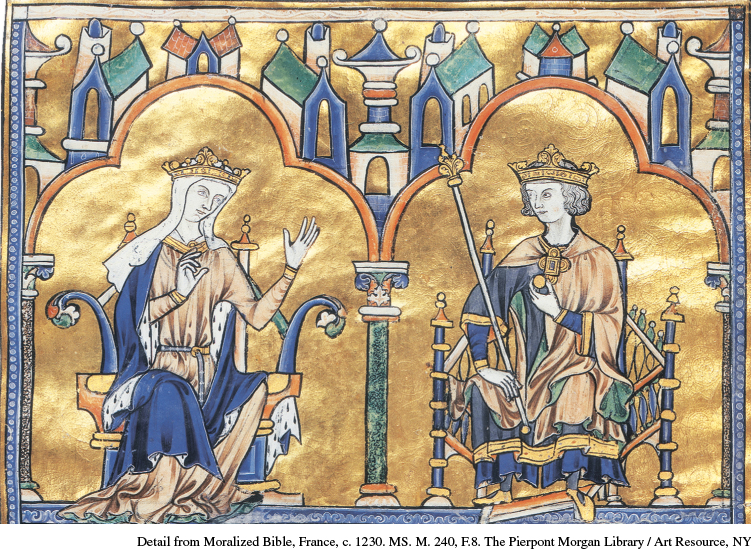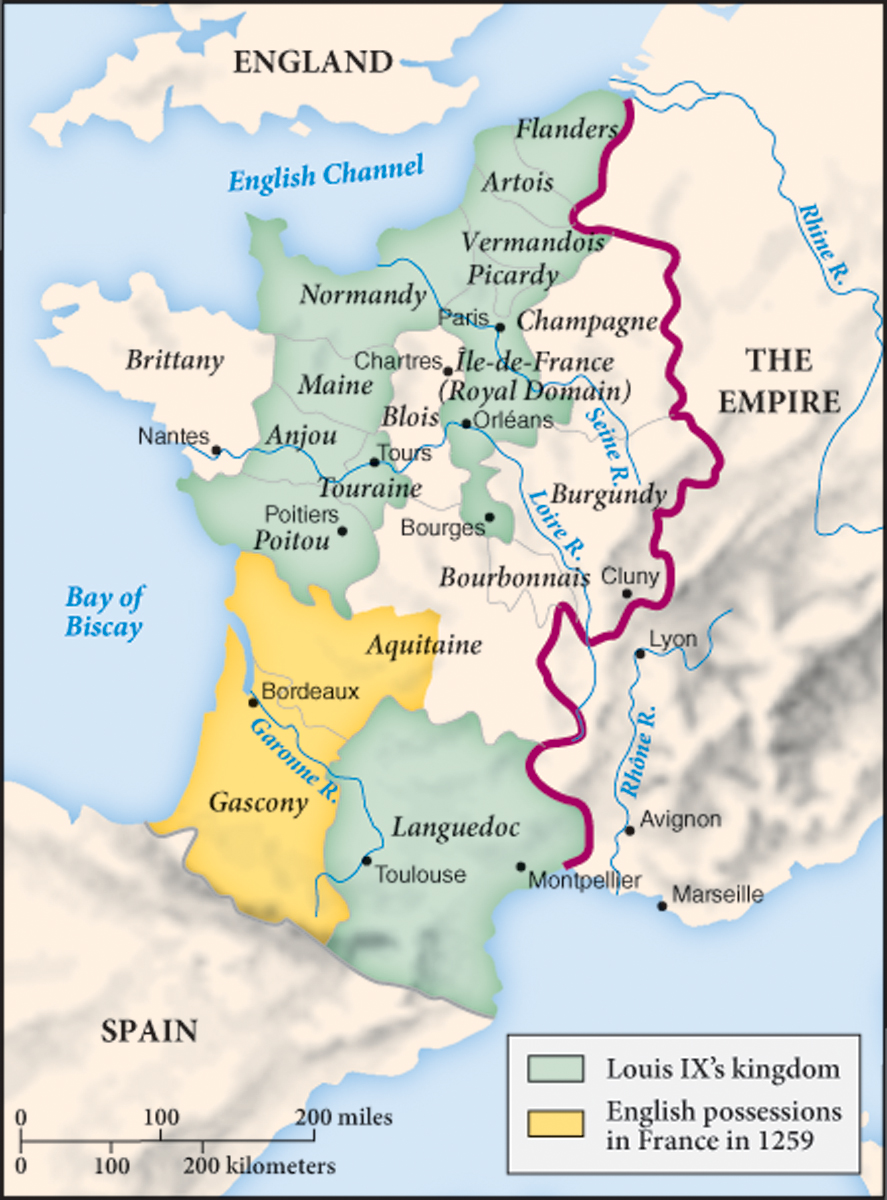Louis IX and a New Ideal of Kingship
Printed Page 393
Important EventsLouis IX and a New Ideal of Kingship
In hindsight, we can see that Frederick’s fight for an empire that would stretch from Germany to Sicily was doomed. The successful rulers of medieval Europe were those content with smaller, more compact, more united polities. In France, a new ideal of a stay-at-home monarch started in the thirteenth century with the reign of Louis IX (r. 1226–1270). Louis’s two crusades to the Holy Land made clear to his subjects just how much they needed him in France, even though his place was ably filled during his first trip by his mother, Blanche of Castile.

Louis was revered not because he was a military leader but because he was an administrator, a judge, and a “just father” of his people. On warm summer days, he would sit under a tree in the woods near his castle at Vincennes, on the outskirts of Paris, hearing disputes and dispensing justice personally. Through his administrators, he vigorously imposed his laws and justice over much of France. At Paris he appointed a salaried chief magistrate, who could be supervised and fired if necessary. During Louis’s reign, the influence of the parlement of Paris (the royal court of justice) increased significantly. Originally a changeable and movable body, part of the king’s personal entourage when he dealt with litigation, the parlement was now permanently housed in Paris and staffed by professional judges who heard cases and recorded their decisions.

Unlike his grandfather Philip Augustus, Louis did not try to expand his territory. He inherited a large kingdom that included Poitou and Languedoc (Map 12.1), and he was content. Although at first Henry III, the king of England, attacked France continually to try to regain territory lost under Philip Augustus, Louis remained unprovoked. Rather than prolong the fighting, he conceded a bit and made peace. At the same time, Louis was a zealous crusader. He took seriously the need to defend the Holy Land from the Muslims when most of his contemporaries were weary of the idea.
Respectful of the church and the pope, Louis never claimed power over spiritual matters. Nevertheless, he vigorously maintained the dignity of the king and his rights. He expected royal and ecclesiastical power to work in harmony, and he refused to let the church dictate how he should use his temporal authority. For example, French bishops wanted royal officers to support the church’s sentences of excommunication. But Louis declared that he would authorize his officials to do so only if he was able to judge each case himself, to see if the excommunication had been justly pronounced or not. The bishops refused, and Louis held his ground. Royal and ecclesiastical power would work side by side, neither subservient to the other.
It would be easy to fault Louis for his policies toward Jews. His hatred of them was well-known. He did not exactly advocate violence against them, but on occasion he subjected Jews to arrest, canceling the debts owed to them (but collecting part into the royal treasury) and confiscating their belongings. In 1253, he ordered Jews to live “by the labor of their hands” or leave France. He meant that they should no longer lend money, in effect taking away their one means of livelihood. Louis’s contemporaries did not criticize him for his Jewish policies. If anything, his hatred of Jews enhanced his reputation.
In fact, many of Louis’s contemporaries considered him a saint, praising his care for the poor and sick, the pains and penances he inflicted on himself, and his regular participation in church services. In 1297, Pope Boniface VIII canonized him as St. Louis. The result was enormous prestige for the French monarchy. This prestige, joined with the renown of Paris as the center of scholarship and the repute of French courts as the hubs of chivalry, made France the cultural model of Europe.